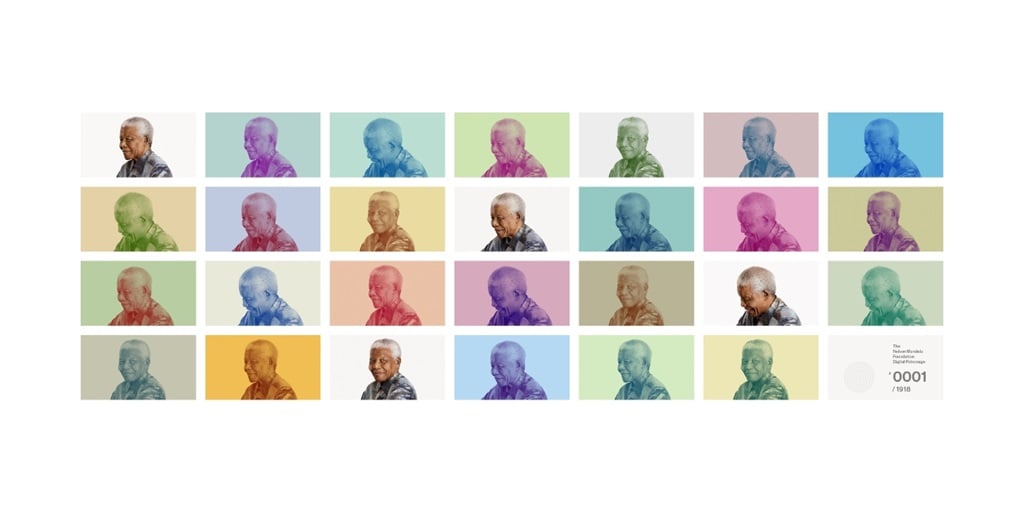Nelson Mandela Foundation wants to raise R37m from sale of NFTs

Digital artwork created using four 2007 portraits of Mandela taken by Andrew Zuckerman.
Nelson Mandela Foundation
- The Nelson Mandela Foundation is selling a collection of NFTs to raise money.
- An NFT is digital artwork that is verified as being original using blockchain technology.
- The foundation said that NFTs could play an important role in the future of digital membership and philanthropy.
- For more stories, visit the tech and trends homepage.
The Nelson Mandela Foundation (NMF) is selling non-fungible tokens (NFTs) to the value of $1 000 (R19 000) each to raise money for its work.
Ten years after Mandela’s death, the NMF has decided to release 1 918 “founding memberships” which are presented with a digital artwork of Madiba in 27 colours. It was made using four photographs taken by Andrew Zuckerman in 2007.
1918 was the year of Mandela’s birth and he was in prison for 27 years.
If all the NFTs are sold, the foundation will raise R37 million, which will be used for initiatives like feeding schemes and support for early childhood development centres.
The foundation has partnered with Glorious Digital to use NFTs as a form of patronage. It said that it hoped to attract a new audience of tech-savvy patrons who are interested in supporting socially impactful projects.
CEO Sello Hatang said:
The Nelson Mandela Foundation is constantly exploring innovative ways to reach a greater breadth of supporters.
“By using emerging technology, the foundation can further unite supporters globally.”
An NFT is a digital artwork that can be verified as being original using blockchain technology. Blockchain is a digital database that provides a history of transactions that can’t be tampered with, as it provides transparent information sharing.
The foundation highlighted an array of benefits from using blockchain technology for fundraising. It said it was low cost as there were no intermediaries and that it was a transparent, secure and efficient way to raise funds.
Patrons will also have access to benefits such as invitations to exclusive online and in-person events curated by the foundation.
It also acknowledged and addressed criticisms over the high transaction cost, environmental impact and speculative nature of NFTs.
It said that Glorious Digital made use of CENNZnet blockchain which had minimal transaction fees and a relatively low impact on the environment.
The foundation said that minting an NFT had a comparable environmental impact to making an Instagram post or sending an email.
It added that it was “committed to exploring this technology in a way that aligns with our values and mission as an organisation”.
“We believe that NFTs have the potential to play an important role in the future of digital memberships and philanthropy.”